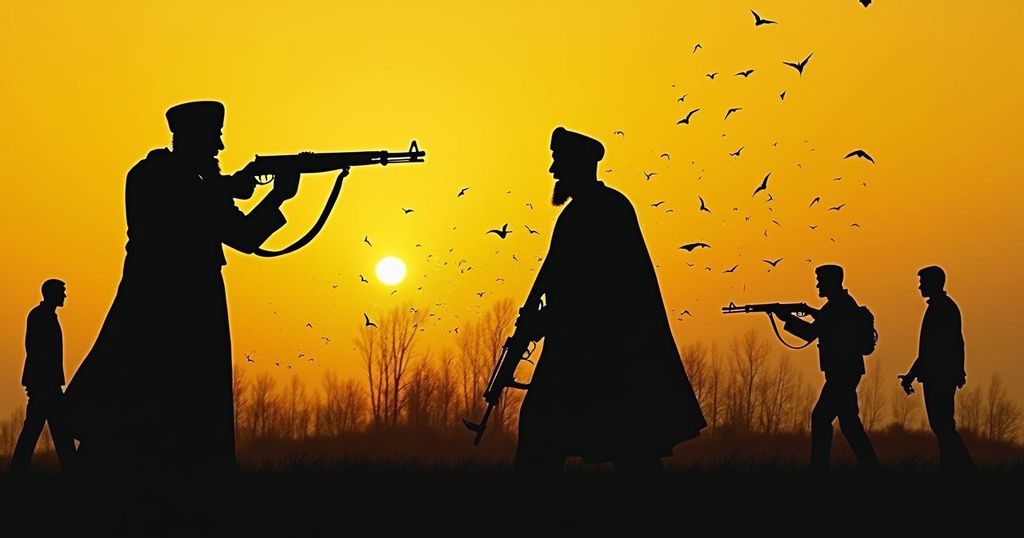Hassan Nasrallah, prominent leader of Lebanon’s Hezbollah, was killed in an Israeli airstrike in Beirut, amidst ongoing conflict with Israel. He transformed Hezbollah into a significant paramilitary and political force since 1992. His death fuels fears of escalated violence in the region, particularly given recent attacks in solidarity with Hamas.
Hassan Nasrallah, the enduring leader of Lebanon’s Hezbollah, was reportedly killed by an Israeli airstrike, marking a significant turning point in the ongoing conflict in the region. At the age of 64, Nasrallah had been instrumental in transforming Hezbollah into a formidable paramilitary force and political entity since taking leadership in 1992 following the assassination of his predecessor, Sayyed Abbas Musawi. His leadership saw Hezbollah engaged in the 2006 Lebanon War against Israel, during which he claimed a strategic victory despite the devastating toll on both sides. His death occurred amidst a surge of hostilities following the recent escalation of violence between Israel and Hezbollah, which had been intensified by solidarity attacks in support of Hamas amidst the Gaza conflict. Hezbollah’s statement confirmed his passing, declaring, “His eminence Sayyed Hassan Nasrallah… fell as a martyr on the road to Jerusalem.” Nasrallah’s tenure at Hezbollah was marked not only by significant military engagements but also by an extensive network of social services that contributed to his popularity, particularly among Lebanese Shiites. The airstrike that claimed his life took place in Haret Hreik, a Hezbollah stronghold in southern Beirut, causing substantial destruction and civilian casualties. This strike coincides with a period of escalating tensions in Lebanon, where interceding Israeli bombardments have resulted in over 700 casualties within just a week, further complicating the regional security landscape. Nasrallah’s legacy is characterized by the duality of his role as both a military leader and a political figure who deftly navigated the complex dynamics of Lebanese politics and regional geopolitics, consistently positioning Hezbollah against what he referred to as the ‘enemies’ of Israel and the United States. His ability to rally support transcended national boundaries, earning him respect and a following within various Shiite communities across the Arab world.
Hassan Nasrallah, born into a modest family in Beirut, grew up during the tumultuous period of the Lebanese Civil War. He joined the Amal movement, beginning his ascent in Shiite political life. Co-founding Hezbollah with support from Iran after the Israeli invasion of Lebanon in 1982, he became the group’s Secretary-General in 1992. His strategies included using a mix of military engagement against Israel and political maneuvering within Lebanon, culminating in the establishment of a social welfare network that bolstered Hezbollah’s influence. A formidable adversary of Israel, Nasrallah’s leadership witnessed multiple conflicts, including the 2006 war, and he remained a key player in the regional dynamics involving Iran, Syria, and Palestinian factions until his death. His demise alters the security calculus in Lebanon and raises concerns about potential escalations in violence in the region.
The death of Hassan Nasrallah signifies a pivotal moment in not only Hezbollah’s history but also in the broader context of Middle Eastern geopolitics. His maneuvers positioned Hezbollah against Israel as a central player in the ongoing Israeli-Arab conflict. The response to his death will inevitably shape responses from his supporters, the Israeli government, and other regional actors. A legacy of contentious engagement and significant influence awaits further developments in the wake of his passing.
Original Source: apnews.com







